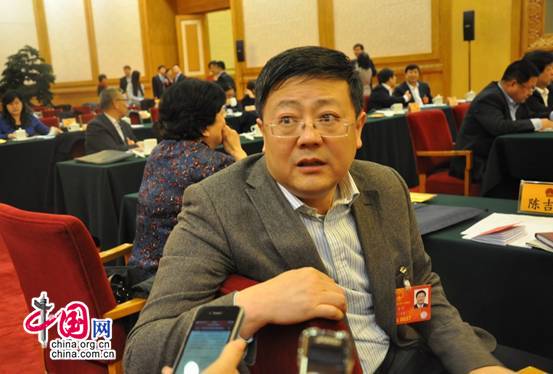Beijing should strive to be int'l academic center
- By Zhang Junmian
 0 Comment(s)
0 Comment(s) Print
Print E-mail China.org.cn, March 14, 2013
E-mail China.org.cn, March 14, 2013
Beijing should strive to become an international academic center by making use of its top-notch colleges and universities, a deputy from Beijing said during the ongoing session of the 12th National People's Congress (NPC).
 |
|
Chen Jining, president of Tsinghua University |
Developing itself into a global academic center should be part of the capital's efforts to build Beijing into an international city, said Chen Jining, who is also president of Tsinghua University, one of the two most prestigious universities in China.
Achieving this status, as well as being the country's political and cultural center, will play an important role in boosting the city's economic growth, Chen stressed.
"Universities in a city not only offer talent and S&T products and services, but help create a desirable academic environment with satisfactory S&T facilities and innovation platforms, which attract the top-class enterprises to relocate to the city where these universities are located," Chen said, highlighting that this role played by universities will give an impetus to a city's economic growth, boost industrial upgrading and promoting regional economic transformation.
The better one university is, the greater the amplification effect will be, Chen said, illustrating his point with Tsinghua University.
Every penny the university obtained from the state for S&T research will stimulate the enterprises based in the Tsinghua S&T park into putting two pennies in this regard, while the industrial output value will be enlarged more than ten times.
The university and its S&T park contribute 3-4 percent to Beijing's regional gross domestic product (GDP).
Presently, a total of 110 enterprises, including 22 state-owned enterprises and 18 of the world's top 500, have set up or invested in cooperative R&D institutions at the university.
To fulfill this goal, Chen believed that the development of the central government department-administered universities should be integrated into the city's overall strategy on educational planning, disciplinary layout, S&T innovation and cultural innovation, with all resources utilized in a unified and appropriate manner.
"It's important to bring into full play the role of higher education institutions in boosting the high-end industries in the capital," Chen said. "No cities in the world can cluster such quality educational resources like Beijing, whose future development can never be separated from its advantages in higher education."
Chen said, "The city should roll out an overall strategy on the development of its higher education against the backdrop of regional economic development, and central government department-administered universities need to foster close cooperation ties with the local ones."
The capital city has a total of 89 higher education institutions, 36 of which are colleges and universities directly under central government departments.
Statistics from the Ministry of Education show that 70 key disciplines fostered by Beijing's universities are ranked top across the country in 2012, accounting for nearly 75 percent of the national total.





